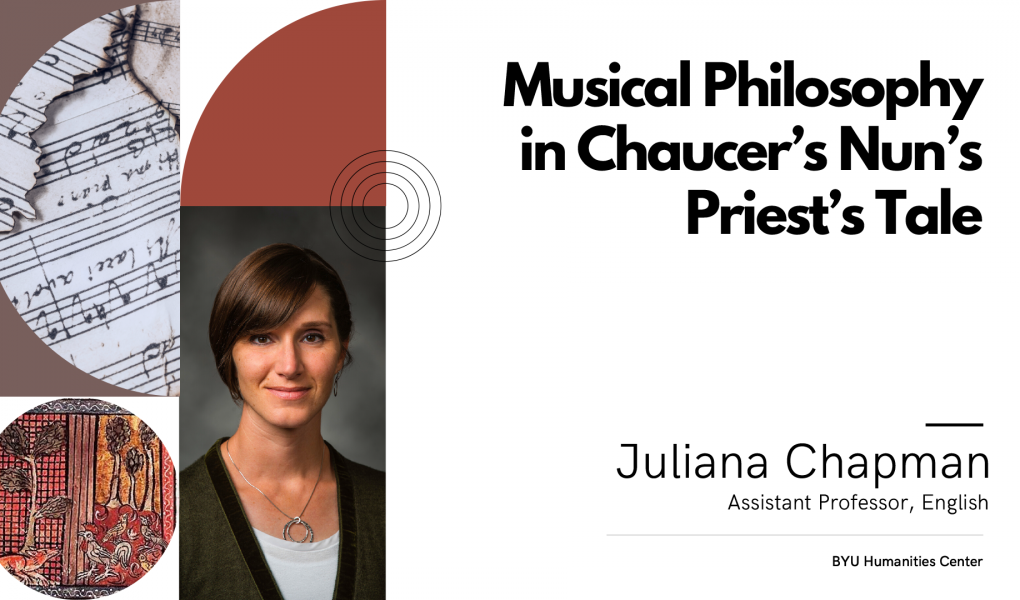Date/Time
Date(s) - 02/18/2021
3:00 pm - 4:00 pm
Category(ies)
Our colloquium this week will be given by Juliana Chapman, Assistant Professor of English and a member of the Medieval and Renaissance Studies (MARS) research group. She will be presenting on her recent research focusing on music and sound in Chaucer’s poetry. Please join us on Thursday, February 18th at 3:00 pm via Zoom.
Title: “Musical Philosophy in Chaucer’s Nun’s Priest’s Tale”
In the introduction to his book, Disseminal Chaucer: Rereading “The Nun’s Priest’s Tale” (2010), Peter Travis ends with an extended musical metaphor drawn from jazz pianist Art Tatum: “if our goal is to arrive at an appreciation of the fullness of Chaucer’s ‘harmonic imagination,’…it is imperative that we first attend to Chaucer’s achievements riff by riff—a few notes, and a few chords, at a time.”[1] Taking Travis’s evocative metaphor more literally than he meant it, this presentation will address the music theory and philosophy that frames The Nun‘s Priest’s Tale, primarily through its lead vocalist, Chauntecleer, the rooster. Not typically considered “songbirds,” Chaucer playfully presents this rooster largely in terms of his voice. Indeed, his name itself, Chauntecleer, deriving from the French, chante cler, to sing clearly, reinforces the role of vocal music. No mere device of the fable genre, the musical characterization, performance, reception, and interpretation illustrated in this tale relies on medieval music and sonic theory. Chaucer sequences his music references and episodes in a manner that tracks on medieval music theory, progressing through the music of the spheres, and the idea of the musicus (musician), and giving a new structure for how to read this tale. In doing so, Chaucer offers a comprehensive way to treat many seemingly disparate themes that have already been noted in the poem, including issues of authority, agency, pride, truth and deception, potential, knowability, order, and harmony. We see the enactment of Chaucer’s “harmonic imagination” in the way that music orders and holds together the other philosophical themes of the tale, even in those moments that resist a simple interpretation as part of his overall project of questioning the standard answers from the standard authorities.
[1] Peter W. Travis, Disseminal Chaucer: Rereading “The Nun’s Priest’s Tale” (Notre Dame: University of Notre Dame Press, 2010), 27.
Join us via Zoom: https://byu.zoom.us/j/99606990110






